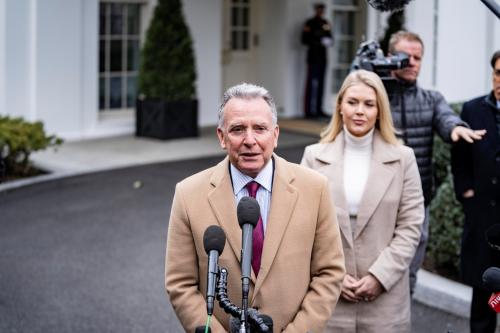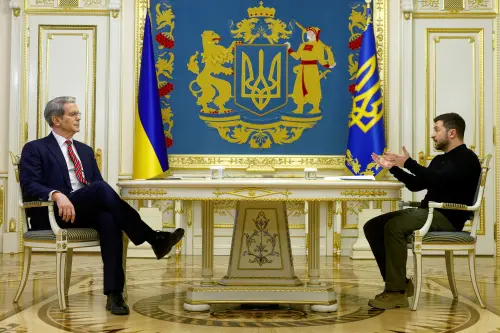

1:00 pm EST - 2:30 pm EST
Past Event
Recent geopolitical, regional, and internal dynamics in the Middle East have been shaping the actions of nonstate armed actors in the region. Internal power struggles within Iraq over months-long efforts to form a new government have been affecting both Iraq’s paramilitary groups and the Islamic State. In Libya too, the various political factions and their militias have again resorted to armed clashes in a similar contest over government control. In Syria, various jihadi groups as well as anti-jihadi and anti-Assad nonstate armed actors operate even as the Assad regime has become increasingly normalized. In Yemen, the fragile ceasefire between the Houthis and the externally-sponsored Yemeni government faces significant challenges. External actors remain thickly involved in those and other Middle Eastern and North Africa countries diplomatically, militarily, and via proxies, such as the Wagner Group.
On December 5, the Brookings Institution’s Initiative on Nonstate Armed Actors held a panel to explore how nonstate armed actors are evolving and adapting to changing internal political dispensations and the external geopolitical and regional environment.
After their remarks, panelists took questions from the audience. Viewers submitted questions via email to [email protected] or Twitter using #NonstateArmedActors.
Moderator

Panelist




Steven Pifer
April 22, 2025

Thomas Wright
April 4, 2025

Steven Pifer
April 3, 2025